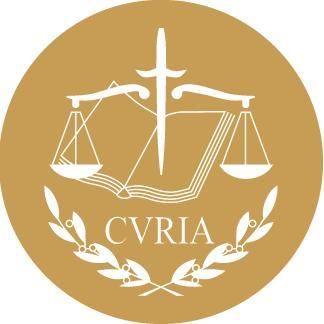In Case C-47/20, a German national (F.) who is normally resident in Spain, has held a Spanish driving licence since 1992 (categories A and B). After having driven in Germany while intoxicated, he had his right to drive with that licence there withdrawn, on the ground of unfitness to drive.
In addition, he was prohibited from applying for a new driving licence for a 14-month period. During that prohibition period as well as afterwards, the Spanish authorities renewed F.’s licence on a number of occasions by issuing him with new documents.
A few years after the expiry of the prohibition period, F. lodged an application with the City of Karlsruhe (Germany) to have the validity of his Spanish driving licence recognised.
The City of Karlsruhe refused that application, taking the view that, under German law, F. had to present a medical-psychological expert’s report in order to dispel the doubts as to his fitness to drive. After all,he had not obtained any new driving licence in Spain the validity of which had to be recognised in accordance with the Directive on driving licences, but had been issued only with documents for renewing his original driving licence.
However, it may not affix to the licence any endorsement indicating a prohibition from driving on its territory, that alteration falling withinthe exclusive competence of the Member State of the holder’s normal residence
The Bundesverwaltungsgericht(Federal Administrative Court, Germany), hearing the dispute, referred a question to the Court of Justice on the extent of the principle of mutual recognition of driving licences provided for by the directive. By its judgment of today in this case, the Court of Justice recalls that the principle of mutual recognition applies equally as regards the driving licence issued from a renewal, subject to the exceptions laid down by the directive.
The Court notes in this regard that a Member State may, as a result of unlawful conduct in its territory, refuse to recognise the validity of the licence and lay down the conditions with which the holder must comply in order to recover the right to drive in that Member State’s territory.
However, where the person concerned has been issued in his or her Member State of residence, after the expiry of any prohibition period, with a new driving licence, the recognition of the validity of that licence cannot be made subject to the production of a medical-psychological expert’s report.
In such a situation, after all, the unfitness to drive was lifted by the test of fitness carried out when that new driving licence was issued, the issuing Member State having beenrequired, on that occasion, to verify that the candidate satisfiedthe minimum standards of the directive of physical and mental fitness for driving.
The mere renewal of a driving licence in categories A and B cannot be equated with the issue of a new driving licence, given that the directive does not require Member States, during the renewal, to carry out an examination of the minimum standards of physical and mental fitness for driving.
Accordingly, the Member State in whose territory the holder of a licence for categories A and B that has only been renewed wishesto drive, after having been deprived, following the commission of a road traffic offence in that territory, of the right to drive in that territory, may refuse to recognise the validity of that licence where the conditions laid down by national law for the restoration of the right to drive in that territory are not satisfied.
The risk of road-traffic accidents occurring can thereby be reduced. It must however be open to the driving licence holder to provide evidence that his or her fitness to drive underwent a check, during the renewal of that licence, demonstrating that his or her unfitness to drive was lifted by the effect of that renewal. On the other hand, in its judgment of today in another case, C-56/20, the Courtstates that entries on driving licences fall within the exclusive competence of the Member State in which the holder normally resides.
Accordingly, another Member State cannot affix to the licence–the model of which is harmonised in the form of a plastic card –an endorsement indicating a prohibition from driving within its territory. It is however free to contact the Member State of residence in order for it to record such an endorsement. Moreover, it is not excluded, for the Member State of temporary stay, to ascertain, inter alia by electronic means, in the event of a roadside check within its territory, whether the person concerned has been subject to a measure depriving him or her of the right to driving within that territory.
This second case concerns an Austrian national (AR) who is challenging before the Verwaltungsgerichtshof Baden-Württemberg(Higher Administrative Court of Baden-Württemberg, Germany) the decision of the City of Pforzheim (Germany) requiring him to submit his Austrian driving licence in order for an endorsement to beaffixed to it invalidating it within German territory, on the basis of which the authorisation to drive was revoked on the ground that he had driven a vehicle there under the influence of narcotic drugs.







Leave a Reply